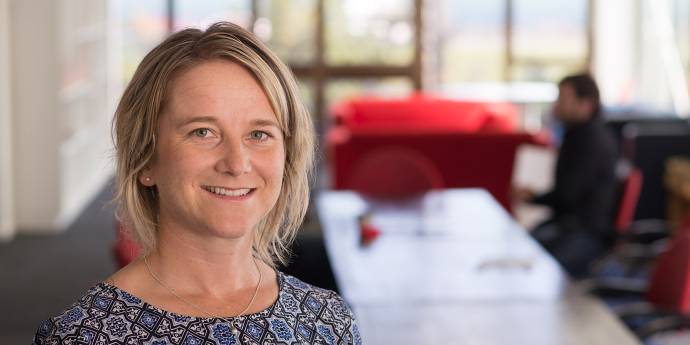Michele Frey: High performance director and athlete
For Michele Frey, high performance is a mantra both as an athlete and as a director.

A triathlete, Michele is heading to Spain in May as part of the New Zealand age group team that will participate in the 2019 Long Distance Triathlon World Championships. The 2017 Emerging Director awardee for the Institute of Directors’ Wellington Branch also recently became a Chartered Member of the Institute — a mark of her commitment to be a high performance director. We spoke with Michele and she shares with us her thoughts on governance.
Tell us a little bit more about yourself
I’m a Principal Environmental Consultant with Xyst Limited with a particular interest and passion for better environments and a better society. A significant amount of my current work is in the parks, recreation, community, tourism strategic planning space. This takes me across Aotearoa supporting a great diversity of projects.
Tell us about the boards where you are a director and what you like most about its work
The New Zealand Recreation Association is a peak body organisation tasked with championing high quality recreation across Aotearoa. The organisation drives good practice for parks and recreation nationally — constantly challenging the thinking of parks and recreation professionals across the country. It’s a privilege to be on the board of NZRA —a highly professional board who have recently demonstrated their competence through attaining Governance Mark through Sport NZ. I am also on the board of Central Districts Cricket. I was part of the NZ Cricket aspiring director programme, and then was appointed to the board officially in November last year.
What skills do you think are important for directors to have, given the changing context of governance?
The ability to be agile and open minded yet retain focus on the direction of the organisation — a balancing act. Being aware of the environment that the organisation is operating in — and never becoming complacent to how that environment is moving and evolving all the time. Really understanding what the customer needs from the organisation.
What do you think is the biggest challenge for directors?
Keeping abreast of the dynamic nature of the world we live in for his/her organisation and being agile and open minded enough to flex where required to thrive!
What are you passionate about outside your work?
Triathlon – in fact I’m going to the Long Distance Triathlon World Championships with the New Zealand age group team in Spain in May. I’m also into cricket, book writing and horse riding.
What do you enjoy most about being a member of IoD?
Meeting lots of new people with clever minds — being able to explore and challenge good governance. Lots of learning!
What particular IoD courses did you find really helpful? Why?
The CDC Residential Programme. I thoroughly enjoyed it. Before I went I thought a full week away was a lot. But the week flew by, we had a great set of speakers who spanned the breadth of competencies required of directors. Plenty of opportunity to put the concepts into practice through some director simulations throughout the week. Not to mention the great group I was with for the week.
What do you think is the value of being a Chartered member of the Institute?
Going through the process of Chartered Membership allowed me to explore where my competency was at, following a focussed year of learning through the IoD Emerging Director award. Having obtained the chartered membership, I can now demonstrate that I have achieved a competency level when considering and pursuing future directorships. This also shows my commitment to professional standards as a governance practitioner.
Who inspires you?
I have lots of inspiring people in my life thankfully! One is Professor Ian Spellerberg of Lincoln University. He stood by me and supported me through my university years, believed in my ambitions and taught me how to unlock doors, often by simply asking the questions, and getting on with it. He remains a close friend and mentor.
What’s the best advice you’ve been given as a director?
Don’t ever assume. And ask the questions.